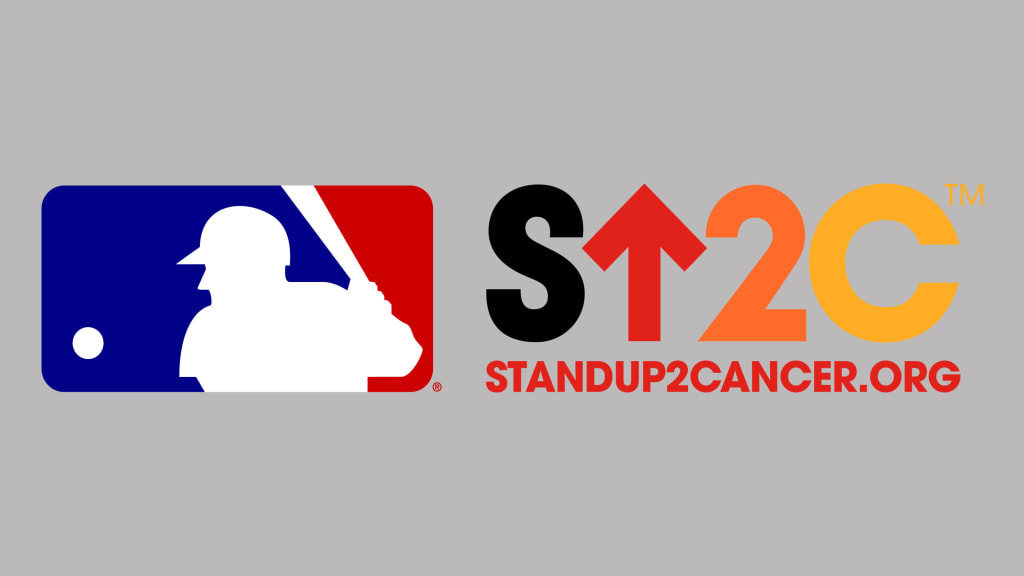
When Trey Mancini stepped into the batter's box on the final day of February, the crowd went crazy.
Sure, the Spring Training matinee was played on a lazy Sunday in Florida's Grapefruit League. True, the game held no bearing in the grand scheme of things. But the first baseman was making his triumphant return from Stage 3 colon cancer, a foe to all.
That Mancini singled in that plate appearance was not of consequence. His being on the field was the win, a testament to the power of modern cancer research, the ultimate team endeavor. Over the past decade-plus, no pair of teammates has worked better together than Major League Baseball and Stand Up To Cancer, extending countless men, women and children deep into the extra innings of their lives.
As March draws to a close and clubs begin their treks to their home cities for the 2021 campaign, Mancini's story serves not just as a beacon of hope, but as a note to all that cancer screening is imperative. March serves as National Colorectal Cancer Awareness Month, a 31-day reminder to be vigilant and aware in the fight against the pernicious disease, according to SU2C co-founder Rusty Robertson.
“Trey was in great shape, so this really shines a light on the increasing rate of colorectal cancer cases among young and middle-aged adults in the U.S.,” Robertson said. “By 2030, the number of cases of colorectal cancer in people under 50 is expected to almost double.”
Mancini was just 27 at the time of his diagnosis, mere months after a career 2019 season in which he belted 35 long balls with 97 runs driven in and 106 scored.
Robertson went on to say that colorectal cancer is beatable in 90% of cases when detected early and with appropriate screening, often entirely preventable. Regular colorectal cancer screening is one of the most powerful tools for preventing colorectal cancer. Stand Up To Cancer recommends screening begins at 45. For those with a familial history of the disease, screening should begin 10 years younger than when the family member was diagnosed, to catch the cancer at the earliest possible stage.
Robertson added that Black people have the highest rates of colorectal cancer of any racial and ethnic group in the U.S., and are often diagnosed at an earlier age and later stage of the disease.
"Black Americans are about 20 percent more likely to get colorectal cancer and about 40 percent more likely to die from it than most other groups,” said Robertson. “People need to know that this is a preventable cancer. One simple step can save lives: get screened.”
This message is particularly important now. Colorectal cancer screening has significantly been impacted by the COVID-19 pandemic, with screening dropping 90% around the onset of stay-at-home orders in early 2020.
In an effort to strike out cancer across the demographic board, SU2C has devoted time and resources to advancing health equity in cancer research.
"Currently, only 4 percent of cancer clinical trial participants are Black. Five percent are Hispanic, and that comes directly from the FDA. So Stand Up To Cancer is working to address this through our Health Equity Initiative," Robertson said.
"We wanted to change all of this, creating new requirements for our teams for example, so if you have a new grant proposal for Stand Up, we now require you to include and address critical issues related to recruitment, making certain that we are prioritizing a diverse mix of patients. This step, along with our efforts to increase awareness about screenings and clinical trials, are crucial to ensuring everyone has access to the most effective cancer treatments.”
Overall, SU2C has taken a groundbreaking approach to accelerate innovative cancer research by encouraging collaboration in the medical community, bringing together the best and brightest researchers with the singular goal of discovering innovative cancer-fighting techniques and treatments. Then the All-Star team of doctors, scientists and researchers are focused on bringing hope to cancer patients. SU2C has formed important collaborations in sports and entertainment to generate widespread awareness and education on cancer prevention, and, in the process, helping more people with cancer diagnoses become long-term survivors. They’ve also engaged organizations like Major League Baseball -- the founding donor of SU2C -- that share their mission to ensuring that a cancer diagnosis is only part of a patient’s story, and that a full and healthy life awaits them.
SU2C has received more than $625 million in donations since its founding, and those contributions have made a significant impact in the cancer research and treatment community. More than 1,950 scientists, representing more than 210 institutions, are involved in SU2C-funded research projects, and more than 180 clinical trials have been funded by the organization. In 2020, SU2C announced three new FDA approvals, bringing the total number of FDA-approved cancer therapies supported by SU2C to nine.
Visit Stand Up To Cancer’s website to learn more and join the effort. Stand Up To Cancer is a division of the Entertainment Industry Foundation, a 501(c)(3) charitable organization.